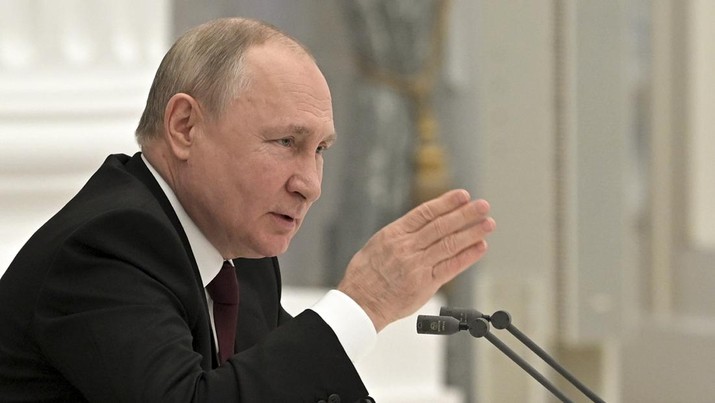
Russia is hosting its second summit with African nations this week, with several important items on the agenda, including grain supplies and the future of the Wagner group on the continent. Forty-nine African nations are reportedly expected to send delegations, although this will include just seventeen heads of state, down from forty-three at the first annual Russia-Africa Summit in 2019. Top leadership from Nigeria, Kenya, and the Democratic Republic of Congo (DRC) will not attend, although leaders from Egypt, Ethiopia, and Senegal, among others, will travel to St. Petersburg for the summit. African nations are expected to reinvigorate a proposed peace plan to end the war in Ukraine, although few believe it is likely to gain much traction. South African President Cyril Ramaphosa suggested that African leaders would push “for an end to the destabilizing Ukraine-Russia war,” referencing the impact it has had on Africa’s economic interests and growing food insecurity. South Africa has remained firmly in Russia’s camp since the war began, but recently came under intense scrutiny about whether Pretoria would enforce an arrest warrant issued for Russian President Vladimir Putin by the International Criminal Court (ICC) if he decided to attend a BRICS summit in August in Johannesburg.
Moscow has accused Washington and its Western allies of pressuring African nations not to attend. Many African nations initially sided with Russia in its war over Ukraine, reflecting a serious investment of time and resources dedicated by the Kremlin to advancing Russian influence throughout the continent. Putin has styled himself as the leader of an anti-imperial, anti-colonial vanguard representing the interests of the Global South. Moreover, Russia has repeatedly appealed to African nations on the issue of “traditional values” and culture, mainly regarding an anti-LGBTQ agenda. Through the Wagner Group, Russia has expanded its reach into highly volatile regions like the Sahel. Recent reporting of a possible coup in Niger means likely further destabilization in the region, situations that Russian mercenaries have exploited for their own gain. African nations, including Uganda, Angola, and Burkina Faso, remain loyal purchasers of Russian weaponry, and many African countries have relationships with Moscow dating back to the Cold War. But some African countries are reconsidering their stance, recognizing Russia’s ham-fisted approach in Ukraine as counterproductive. Raila Odinga, an opposition politician in Kenya, spoke out against Russia’s invasion and suggested that the timing for a summit made little sense, especially while the war was still raging.
According to the International Monetary Fund, global wheat prices could increase by approximately 15% after Russia’s recent withdrawal from the Black Sea grain deal. While Putin has publicly suggested that Russia would replace grain shortfalls by donating Russian stockpiles to African countries, many expect Moscow to use the summit to attempt to broker bilateral deals, circumventing the United Nations and, in the process, making African states dependent on Russia. African delegations will arrive in St. Petersburg looking to advance their own agendas, however, and will press the Kremlin on helping to ameliorate shockwaves currently convulsing world gain markets and world fertilizer markets. There are also likely to be some serious conversations between African delegations and Russia about the Wagner Group’s aborted mutiny and what that portends for the future of Wagner, or perhaps a similar private military company (PMC), in countries like Sudan, Mali, Central African Republic (CAR), and elsewhere. Both Putin and Russian Foreign Minister Sergei Lavrov have reassured African leaders that Russia would not abandon Africa. The truth is that Moscow needs these relationships just as much as some African states need Russia. This is especially the case as Moscow remains under biting sanctions. Wagner’s operations throughout the Sahel and parts of Central Africa are crucial to the Kremlin’s sanctions evasion strategy. Gold, diamonds, timber, and other precious resources are extracted in exchange for Russia providing security and military support – without the “baggage” of adherence to international human rights law – to military juntas, warlords, and other African strongmen.

Moscow is attempting to highlight the Russia-African Summit as proof of ‘normalcy’ and diplomacy as usual between the Kremlin and countries throughout the Global South. But many African leaders are likely concerned about Putin’s grip on power and stability in Russia more broadly, following Wagner’s rebellion. For the most part, Russia remains marginalized on the world stage, heavily sanctioned, and exposed as a second-rate power that resorts to nuclear blackmail to coerce its adversaries. Those countries which remain in Russia’s orbit are a rogue’s gallery of states, including Belarus, Iran, and North Korea. The poor performance of Russia’s military in Ukraine is bad public relations for its training capabilities and is unlikely to have inspired much confidence throughout African capitals. And for someone who has gone to great lengths to portray himself as a master strategist, Putin’s tactical and strategic blunders in invading Ukraine have exposed him as vulnerable. In response to Russia’s bellicosity in Ukraine, both Sweden and Finland entered the alliance and most Western leaders have made positive comments about Ukraine’s prospects to follow suit in the future. The summit is an opportunity for Russia to seek to reassure African states, and Moscow plans to engage closely with heavyweights including Ethiopia, Nigeria, and Senegal. But Russia has undoubtedly lost leverage in the past year and a half, so assuaging African demands may not come easy for Moscow, which has little to show for its ill-fated invasion of Ukraine.





